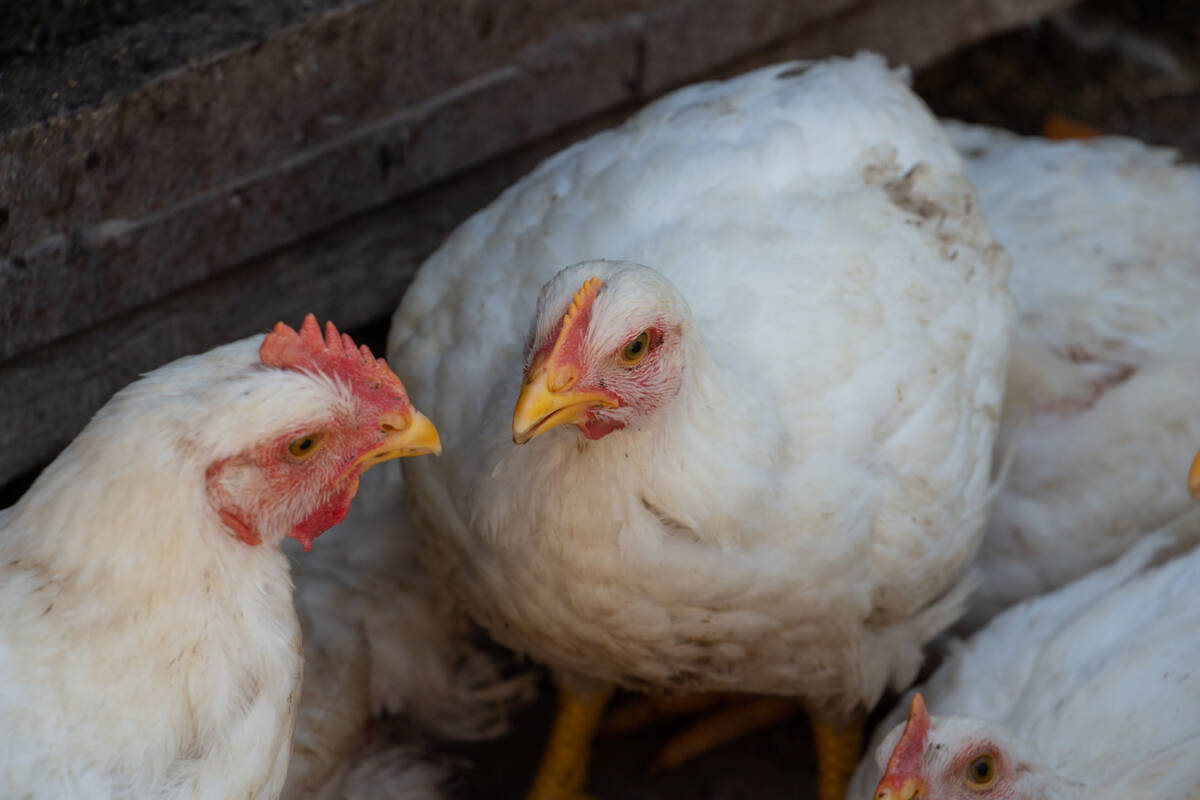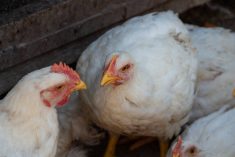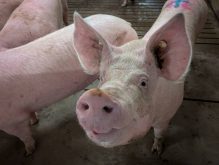Resurrecting a potentially thorny issue, a new Alberta-backed study will analyze whether the benefits would outweigh the costs if BSE testing were allowed anytime a beef-importing customer asks.
The project is meant to help to determine whether pre- or post-slaughter testing would allow Canadian products access to export markets that are “currently not available” to Canada’s cattle producers.
“Alberta’s beef industry is market-driven (and) we need to constantly be evolving as science and technology progresses in order to further enhance our market opportunities,” provincial Agriculture Minister Jack Hayden said in a release Wednesday.
Read Also

Chicken, eggs benefit from demand for economical protein
Strong demand for protein and status as an economical alternative to beef bodes well for chicken and egg demand in 2026 according to recent analysis from Farm Credit Canada.
The $179,000 study, to be run by the Guelph, Ont.-based George Morris Centre following a request for proposals (RFP) last November, “is separate from our world-class surveillance system and the other steps that we already take to ensure the safety of our beef products for consumers.”
Currently, testing of slaughtered cattle for bovine spongiform encephalopathy (BSE) is done in Alberta under the Canada/Alberta BSE Surveillance Program (CABSESP), a joint initiative focused on surveillance of animals at higher risk of being affected by BSE.
“Canada and Alberta must demonstrate to the international community that BSE is being effectively controlled and that feed bans and other mitigation measures are working eradicate the disease,” the province said in its release. “To do this, a sufficient number of animals from 30 to 107 months of age are required to be tested each year.”
The surveillance program helps maintain Canada’s “controlled risk” status for BSE at the World Organization for Animal Health (OIE), which in turn allows cattle and meat products to be exported to countries where beef import policies follow OIE standards.
That said, “at this time, Canadian products are still restricted in certain markets that could be important to industry,” Dr. Kevin Keough, executive director for the Edmonton-based Alberta Prion Research Institute, said in the same release.
“This study will provide an independent look at the issue, as well as reliable data and analysis.”
“Market premiums”
Since Canada’s first domestic case of BSE was found in an Alberta cow in 2003 — followed since then by 11 more from Alberta, four from British Columbia and one from Manitoba — the Canadian beef industry has been “challenged in maintaining and growing its market access,” the province said.
“One option to achieving this could be the creation of a client-driven optional BSE test, performed either pre- or post-slaughter.”
The George Morris Centre’s cost-benefit analysis will look at “whether the costs for the beef industry to perform client-driven optional BSE testing will be recaptured through market premiums.”
Technology for a reliable live BSE test, which wouldn’t require an animal to be slaughtered beforehand, is not yet available but is “advancing” and may be available to the beef industry “sometime in the future,” the province said.
The University of Calgary, for one, recently got $1.5 million from Alberta’s Livestock and Meat Agency (ALMA) to study a DNA-based testing approach to BSE in live cattle.
ALMA will put up 50 per cent of the bill for the George Morris study, while PrioNet Canada and the Alberta Prion Research Institute together will kick in the balance.
“We submitted a proposal for the project because the cost-benefit analysis of BSE testing in cattle is a significant issue and we thought we would make a good contribution to it,” Al Mussell, senior research associate with the George Morris Centre, said in the province’s release.
“Customers’ interest”
The issue of “client-driven” testing of beef cattle for BSE has been the subject of well-publicized court cases in the U.S.
Creekstone Farms, a Kansas processor of Angus beef, took the U.S. Department of Agriculture to court in 2006 over USDA’s refusal to let Creekstone buy BSE kits to test its own slaughtered cattle. The company got as far as the U.S. Court of Appeals, which sided with USDA in August 2008.
USDA and several beef industry players have argued that allowing packers to test on their own would irreversibly undermine a long-held official position: that random BSE surveillance, removal of specified risk materials (SRMs, tissues known to harbour prions causing BSE in infected animals), and a ban on ruminant-to-ruminant feeding are together sufficient to assure safe beef.
Creekstone Farms has contended it simply wants to “meet its customers’ interest in beef from BSE-tested cattle, which they currently can obtain from Asian and European meat processors.”














